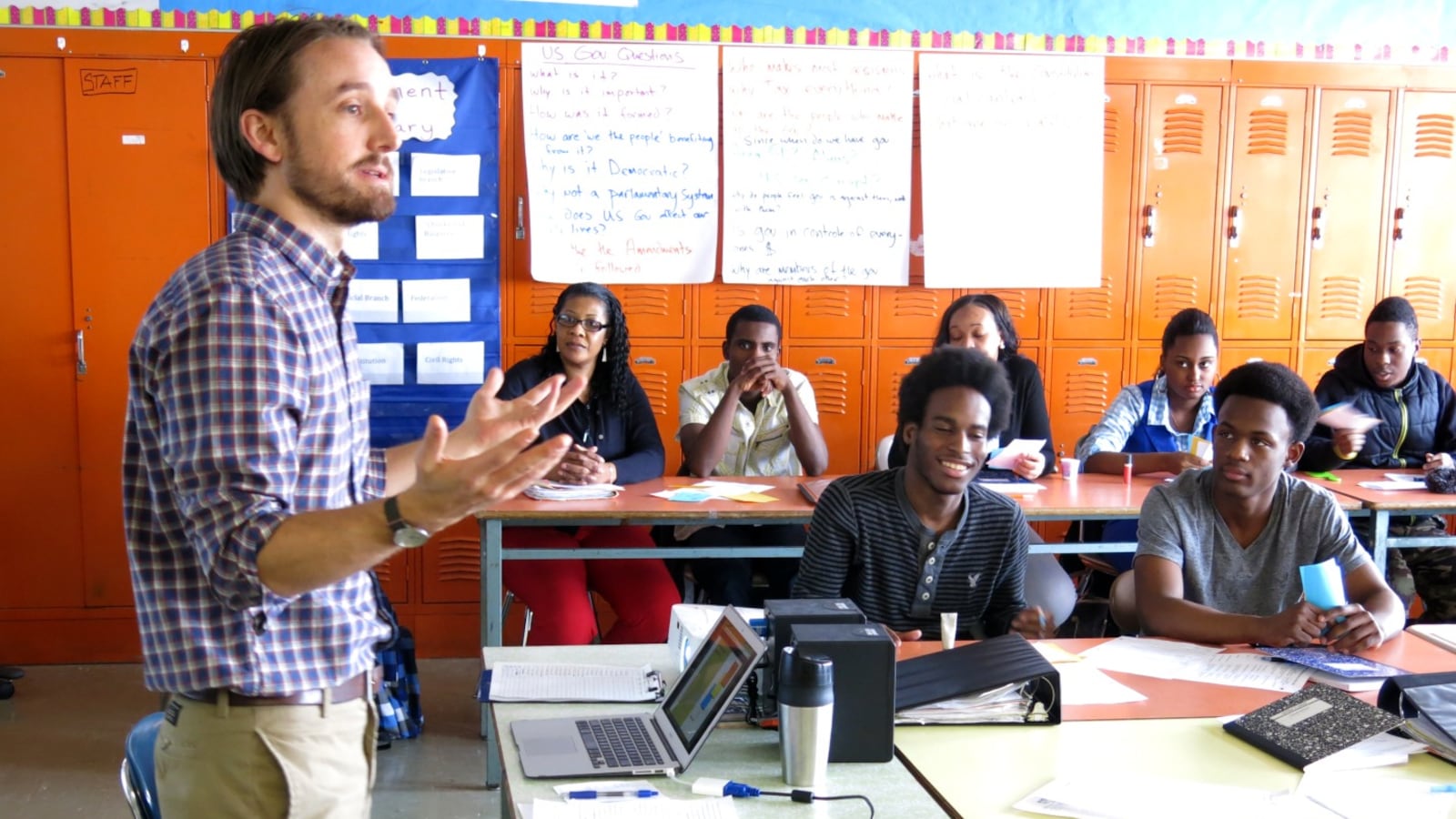One of the most common laments we hear from school leaders is that that there are so few great teachers available to hire. We agree. That’s why we don’t try to find them.
In our experience looking for teachers to join us at the Urban Assembly School for Applied Math and Science in the South Bronx, most proficient teachers at other schools have parlayed their skills into desirable teaching assignments and are already held in high regard by their colleagues and supervisors. This leaves little incentive to search for a similar new job, earning essentially the same salary, at a different school. From a school leader’s perspective, it is a losing proposition to try to find excellent teachers and convince them to leave the school where they have had success and somehow, without any significant additional money, lure them to a new school.
Given those hiring realities, a next logical attempt might be to try hire the best teachers one can find, even if these teachers are not yet great but merely, say, proficient. Or, put another way — assuming a continuum of teacher proficiency starting with new, moving to proficient, and eventually landing on great — many leaders assume that hiring proficient teachers is the best way to develop great teachers, because they are further along the continuum.
We reject that logic. We believe that current placement along the proficiency continuum is essentially not relevant to the potential to become great.
It’s not that we refuse to hire teachers who are already excellent (sometimes we do); it is that this event is such a rarity for a school serving our neighborhood that we cannot build a staffing plan around it.
While this approach offers more candidates, it also means we need to look at way more candidates to get the ones we want — and that we have developed an effective, efficient process to get to an eventual hire.
Our process has several steps, including an interview. That’s when successful candidates are able to describe in good detail one of their favorite academic classes that they have ever been a part of (as teacher or as a learner) and, without prompting, link their enjoyment to the way the teacher made the students think in new ways. They should talk more about poetry or the Pythagorean theorem than about data. In fact, they do not need to mention “Common Core,” “data,” or “no-excuses” policies at all.
But the most critical part of the hiring process — and the most time consuming — is when we ask candidates to perform a “demo lesson” and participate directly afterward in a debrief of that lesson. This is where we test for the key quality of reflectiveness and the ability to receive feedback in a team-based format and immediately translate that feedback into improvement. This, we have found, is the single biggest indicator of potential for growth.
From the school’s perspective, the teacher demonstration, then, is not a showcase in which to gauge proficiency. This can be quite counterintuitive, necessitating that hiring managers remain disciplined and not conflate the ideas of proficiency and potential.
We’ve found that in almost all demo lessons (especially with new teachers), there is a definite lack of student interest and higher-order thinking, something that, as we mentioned earlier, we expect. The question is, how quickly does the candidate acknowledge this, and to what extent does the candidate, with our help, make her lesson substantially better?
If the teacher is not reflective, by the 20-minute mark of the debrief, it will become apparent. She will be unable or unwilling to accept an accurate picture of the classroom. Or she may see the lack in her lesson but be unable to come up with alternative approaches or activities that would generate better results. If given help in coming up with better ideas for tasks, she will be unable to explain why they are better and will be unsuccessful at fleshing out those ideas into actual directions for students and the teacher.
On the other hand, reflective teachers seem to readily agree with the deconstruction of the lesson at about the 20-minute mark, and the best of them, without prompting, are starting to think about what they could have done differently. These teachers relish the idea of helping to reconstruct the lesson so that it is of much higher quality.
And when the debrief turns the corner at the 20- to 30-minute mark, and during the next two hours the candidate greatly contributes and enjoys a difficult conversation that pushes towards excellence, an inescapably emotional experience has occurred. We believe this emotion is the reason that the vast majority of candidates offered employment at Applied Math and Science choose to accept their offers.
By the end of the four-hour total experience, the candidate has been frustrated, challenged, helped, challenged more, and improved. Not just the lesson, but the candidate’s thinking and understanding of quality and excellence have come into sharper focus. The interview itself, consisting of the demo and debrief, has been a challenging but significant learning experience for the candidate. At this point, we don’t have to tell the candidate what support looks like in our school. They just experienced it.
Adapted from The Artisan Teaching Model for Instructional Leadership: Working Together to Transform Your School, by Kenneth Baum and David Krulwich, Alexandria, VA: ASCD. © 2016 by ASCD. All rights reserved.
About our First Person series:
First Person is where Chalkbeat features personal essays by educators, students, parents, and others trying to improve public education. Read our submission guidelines here.

